For many homeowners today, your garage is not just for your car(s). It is or has become more of a storage unit for your items as well. The last thing you need is for it to get flooded.
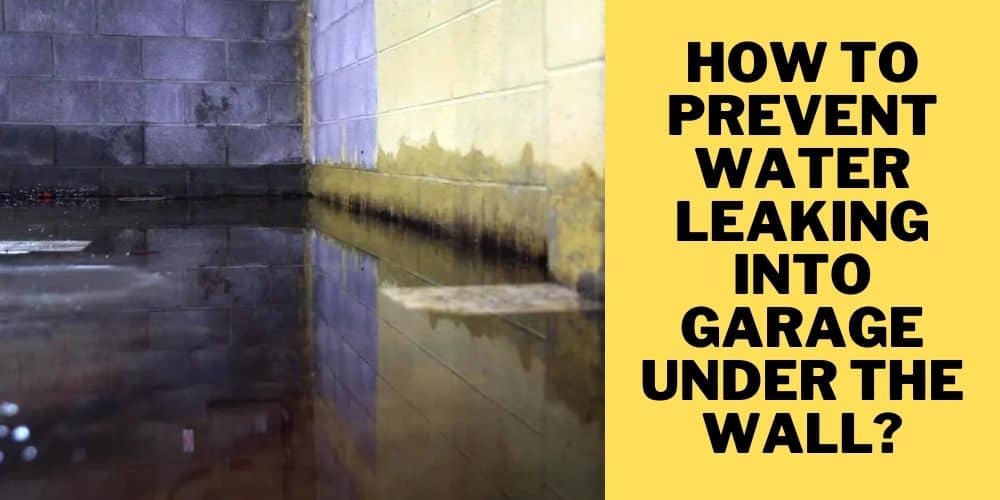
Depending on where the moisture is coming from, it can be an expensive and time-consuming process to get it resolved. Do you live in a region that experiences a lot of rain?
It could be coming from the exterior. Do you live in an area with a high water table? it could be coming from below. Or it could be simply a lack of maintenance on the exterior of the structure or around the garage door. You need to find the source to prevent water leaking into garage under the wall.
Warning Signs of Water leaking into the Garage
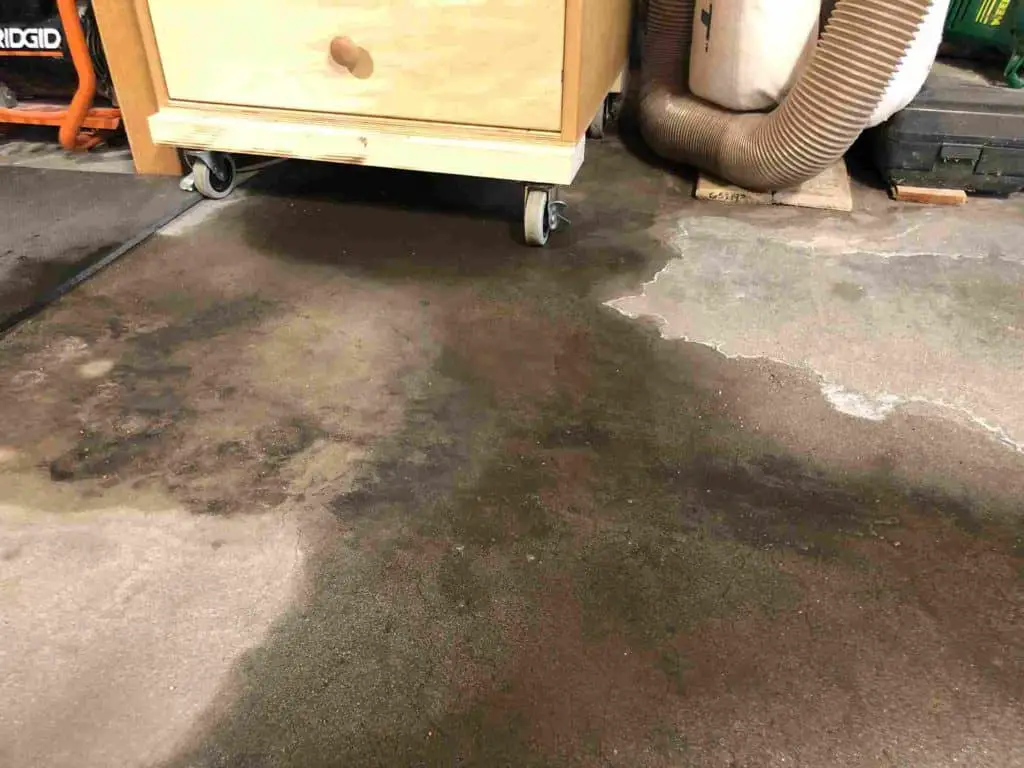
The obvious sign is water on the concrete floor. Other indications could be peeling wall paint, musty smell, mildew, water stain on the wall or garage floor, sudden increase of humidity level, or rust on metal items.
Things To Know Before Stopping Leaks into the Garage
Finding the main cause(s) is important to fix the problem. Moisture in any structure can cause extensive damage over time if not corrected.
Type of walls
What type of walls do you have? Wood Framed Walls with Siding, Brick, Stucco, etc.? Concrete Wall? Block Wall? Knowing this will determine the type of repair(s) that may be needed.
Concrete wall crack
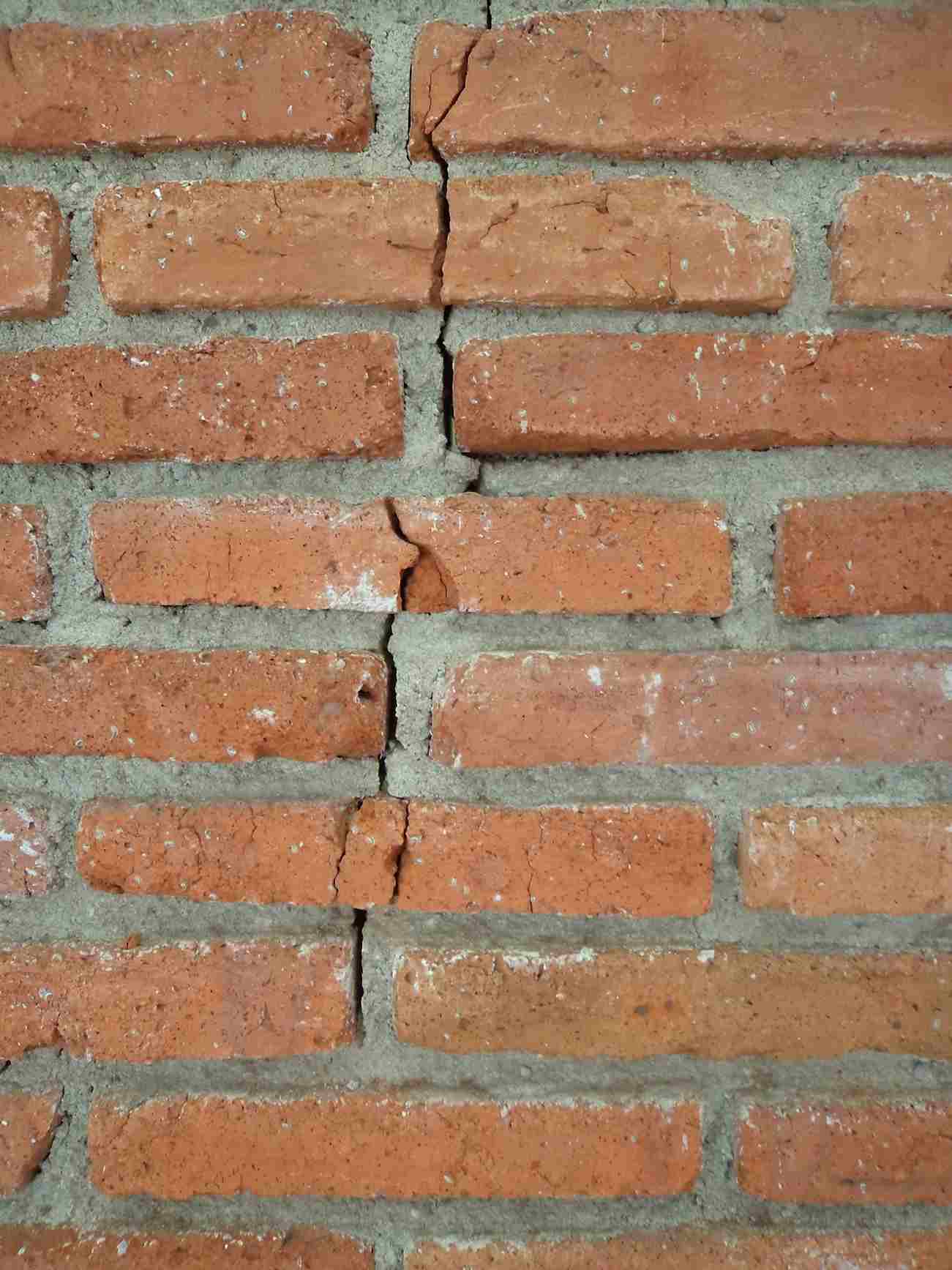
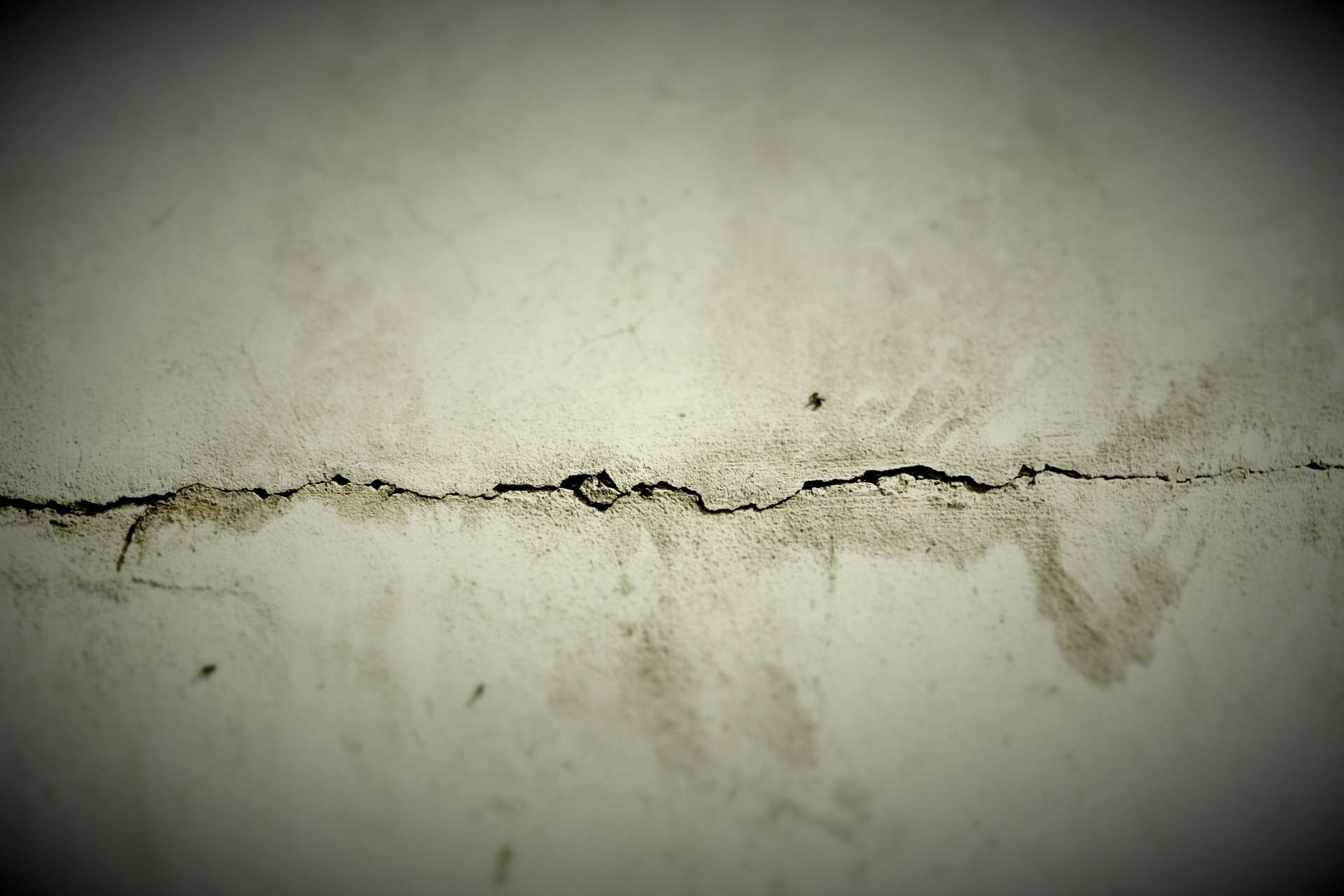
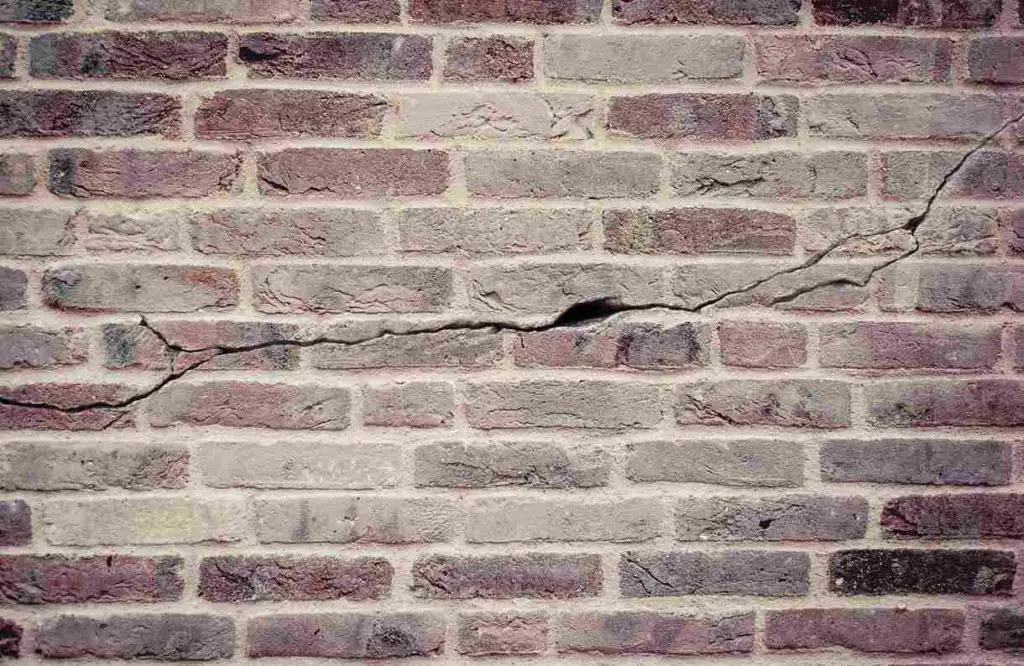
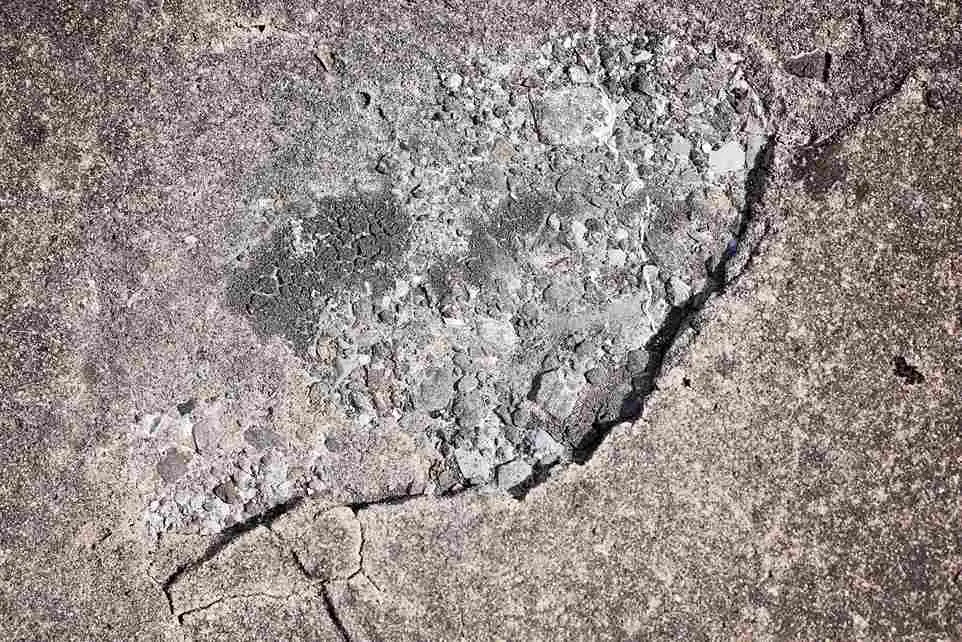
- Brick, concrete and block walls; check the exterior for cracks.
- Look on the exterior for failed sealants around windows, doors, and other wall penetrations like vents & pipes.
- Wood-framed walls; check the interior for signs of moisture damage, then look at the exterior of that location for obvious signs of problems.
What Are The Causes Of A Water Leak Into The Garage Under The Wall?
Is water leaking at base of wall in garage? The cause could be from different sources:
- High water table – hydrostatic pressure can force water through.
- Cracks in the foundation or stem wall.
- Negatively sloped landscaping.
- Cracks in the concrete slab.
- A gap between the wall bottom sill plate and the top of the foundation wall.
- Failure of the exterior wall veneer(s).
- Failure of waterproofing on the exterior.
- Other waterproofing issues behind the veneer.
- Condensation due to elevated humidity (not very common).
How to Prevent Water Leaking into Garage Under the Wall?
Solutions will vary depending on the source and severity of the problem. Serious problems may need an experienced waterproofing contractors and/or engineer to help resolve.
Simple problems could be as easy as the application of average cement waterproofing sealer in a crack. It is important to accurately determine the source before learning how to keep water from seeping under wall?
Examine and Repair Your Garage Walls
- Wet walls issue; wet walls are typically caused by the failure of something on the exterior wall. (ex: old wall joint seams, Aging Sill wall plate, failed sealants, cracks, roof leaks, faulty plumbing).
- Identifying this can be challenging. Many veneers like brick and stucco are considered reservoir claddings. By the nature of the assembly, brick and stucco will hold moisture. If they are designed correctly, that excess moisture will dry out or drain out without creating problems. If those assemblies collect too much moisture, it cannot drain, and there is a breach in the moisture barrier behind the cladding, water can enter the wood wall assembly.
Examine and Repair Your Foundation Walls
- Add or repair waterproofing. A liquid asphalt base or sheet applied membrane may be sufficient.
- If the defect is a crack above grade, install a concrete sealant in the crack per the manufacturer’s instructions.
Sealing Bottom of Garage Walls
- Hydraulic Cement. Sealant. Fluid applied Waterproofing.
Install Drainage System
- A French drain or perimeter drain system installed on the interior or exterior may be necessary if you have a high water table. This pipe system would need to be determined by a soils engineer and installed by a professional waterproofing contractor.
- The soils engineer may recommend the installation of sump pumps to pump away groundwater.
Repair Gutters
- Improperly installed or maintained gutters on the roof. See the link to the article How to Clean Gutters and Downspouts on your Home on Neaternest.
Repair Gutters
- Look for obvious problems with the shingles, roof tile, or roof membrane.
Garage Walls & Ceiling Insulation
- If insulation is installed, you must dry all the moisture. Insulation may need to be removed to dry the wall materials.
- If insulation is not installed, installing insulation can help prevent condensation and maintain a more constant temperature.
Garage Walls & Ceiling Insulation
- If you live in a humid climate, you may need a dehumidifier installed.
Garage Walls & Ceiling Insulation
- Over time, landscaping near the foundation can change. Verify there is positive drainage away from the foundation.
How to Prevent Water leaking Under the Garage Door?
As your garage door ages, the weatherstrip on the bottom, sides, and head of the door may get damaged or wear out and need to be replaced. If the concrete garage floor or driveway shifts, it may need to be leveled or replaced by an experienced contractor.
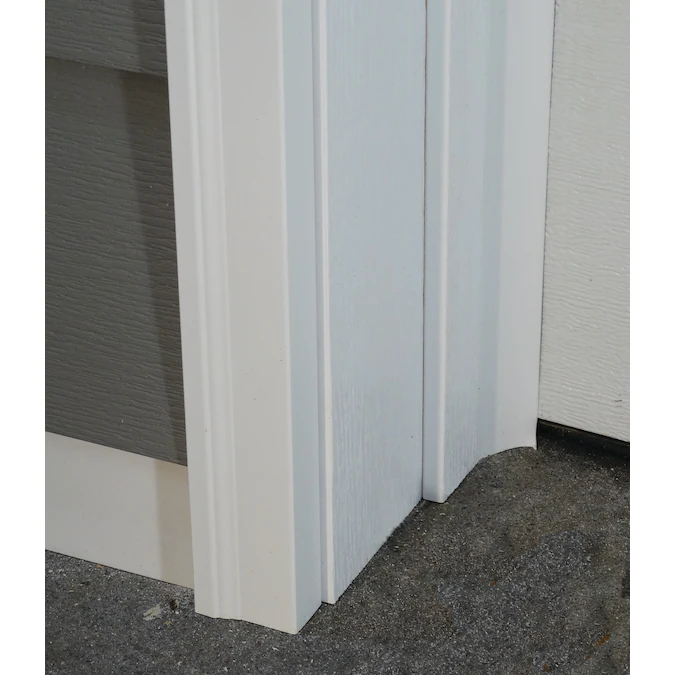
- Check the bottom of the door, outside jamb, and head weatherstrips and replace them as needed.
- Garage door side seal
- Check Driveway for Grade. As property ages, concrete can shift. Verify the driveway slopes away from the garage door.
- Installing a proper drainage channel. As part of the landscaping, you may have or need a drainage swale. A swale is a shallow channel with gently sloping sides. A swale may be either natural or human-made. Artificial swales as part of landscaping are often designed to manage water runoff.
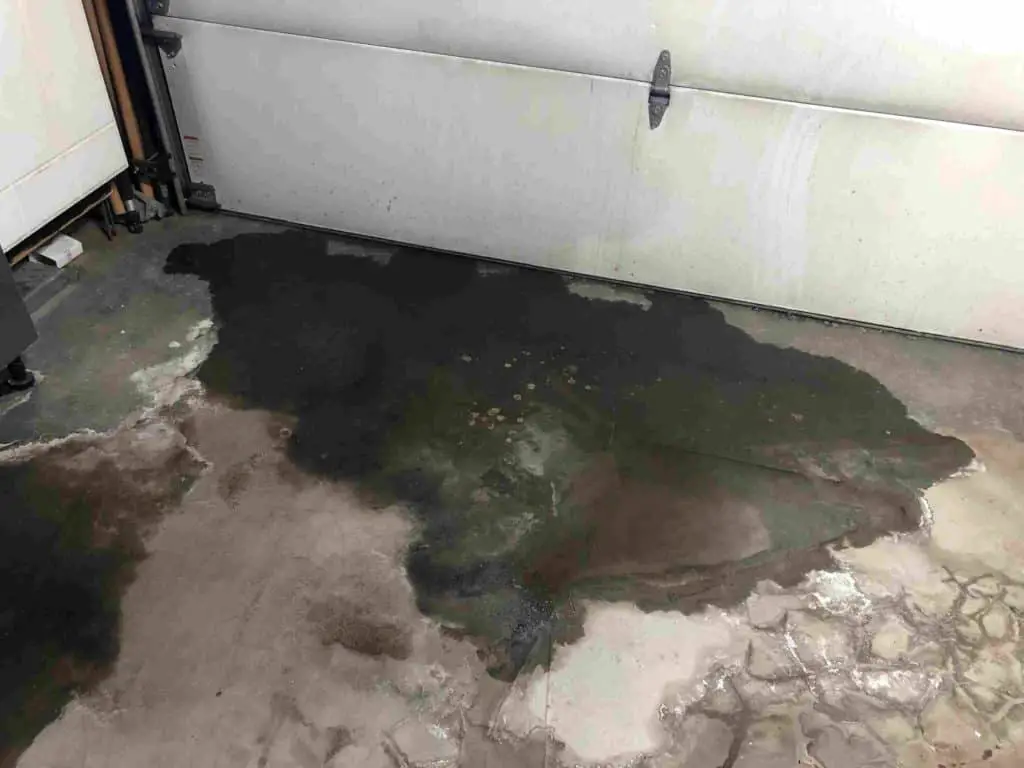
Frequently Asked Questions (FAQs)
1. How to Prevent Garage from leaking at floor level?
If the water is coming through cracks in the floor, you may be able to patch or seal the cracks. If water is coming up where the concrete floor connects to the concrete foundation, a cant bead of sealant applied at the floor to wall connection may be able to stop it.
2. How do I stop water from pooling in my garage?
First, you stop the source. Water dripping off vehicles in the garage cannot be prevented. If it is pooling you need to either level or slope the floor or install a floor drain to capture the water.
3. How do I stop water from leaking under my walls?
Try to determine the source of the moisture. If the source of the water is from the exterior, apply the fix to the outside.
Do not try and plug a leak coming from the outside on the inside of the wall as that may create a dam and back the moisture up making the damage worse. Make the correction on the outside at the source.
4. What should I do if I have already started experiencing problems?
If you have noticed moisture in your garage, try to determine the actual water entrance point. Based on this investigation, you can decide if you want to try and fix it yourself using some of the tips mentioned above or consult with an experienced contractor or engineer.
You May Also Find Useful: How to Stop Condensation in Garage
Products You Can Use to Prevent Water Leaking into Garage Under the Wall
- Concrete Epoxy Crack Fix
- Concrete Crack Sealant
- Concrete Patch
- Self Leveling Concrete Resurfacer
- Self Leveling Concrete Re-Cap
- Masonry & Concrete Wall Sealant
- Mortar Joint Sealant
Contents

